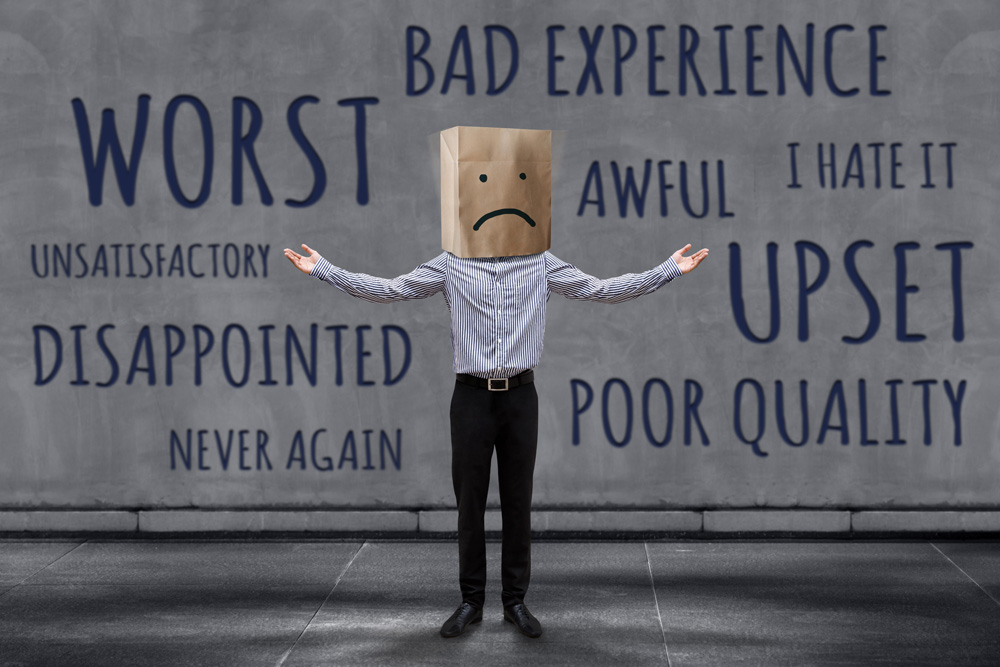Legal Ethics: To respond or not respond to negative online reviews
Legal Ethics: To respond or not respond to negative online reviews
By Sari W. Montgomery
One of the most common questions I am asked by my lawyer-clients is whether they are allowed to defend themselves against online reviews that unfairly criticize their work and what the best response might be.
The conversation typically goes like this:
Lawyer-client: I had this very difficult client. I did everything I could and got a really good result given the facts of the case. But nothing would please this client. At the end of the representation, the client demanded that I refund part of the fees. I explained that I had done a lot of work and gotten a good result, so I would not refund the fees. The next thing I know, the client had written a bad review on [insert various social media platforms here], stating that I am an incompetent crook and that no one should hire me. Can I respond?
Me: I understand that you’re upset, but you have to be very careful about what you say in response.
Lawyer-client: But I’m losing business! Part of the reason we didn’t get a bigger recovery is because the client [insert bad act here]. It’s not my fault!
While it may be tempting to respond to a bad review, particularly an unwarranted one, I generally advise my clients to take the high road and not respond. Barring that, I suggest that they provide a generic response along the lines of, “I’m sorry that you were dissatisfied with my services. I would be happy to discuss the matter further if you’d like to contact me offline.” What I tell them they absolutely should not do is to substantively respond to the review or otherwise include any information about the representation in their online response.
Attorney-client privilege
As most lawyers know, we have an obligation to clients not to reveal information related to the representation. This duty arises from ABA Model Rule of Professional Conduct 1.6 (and its counterpart adopted in each state), and is much broader than just communications that are protected by the evidentiary attorney-client privilege. Confidential information, which a lawyer is ethically bound to protect pursuant to Rule 1.6, is defined as all information related to the representation of a client, whether in documentary, electronic, photographic, or other forms, from any source, and includes the identity of the client and the fact of the representation itself. See, e.g., Rule 1.6, cmt. 3; Restatement (Third) of the Law Governing Lawyers §59. A client’s writing of a bad review about the attorney does not act as a waiver to this duty, nor does it constitute consent to disclose information related to the lawyer’s representation of the client.
The ABA and several states have issued ethics opinions which, with few exceptions, agree that any response to a negative online review “may not disclose confidential client information.” See, e.g., ABA Formal Op. 496 (Jan. 13, 2021); Florida Bar Ethics Op. 20-01 (Oct. 9, 2020); State Bar of Michigan Op. R-26 (Feb. 25, 2022); N.C. State Bar 2020 Formal Ethics Op. 1 (July 16, 2021); compare, Colorado Ethics Comm. Op. 136 (April 15, 2019). In explaining the rationale behind the prohibition, these opinions note that responding to a client’s bad online review does not fall into any of the permitted exceptions to Rule 1.6’s duty of confidentiality. Specifically, they note that a negative online review is not a “controversy between the lawyer and the client within the meaning of Rule 1.6(b),” and that alone “does not meet the requirements of permissible disclosure in self-defense” permitted by Rule 1.6(b)(5). ABA Formal Op. 496. Only Florida and the District of Columbia have added narrow exceptions to the language of Rule 1.6 to allow lawyers to disclose confidential information in response to a negative online review in limited circumstances. See, e.g., R. Regul. FL. Bar 4-1.6(c)(7); D.C. Bar Ethics Op. 370 (Nov. 2016).
Lawyers have been disciplined for disclosing client information in response to a negative online review. For example, a lawyer in Illinois represented a flight attendant in an unsuccessful effort to obtain unemployment benefits after the flight attendant allegedly assaulted another airline employee during a flight. The client fired the lawyer and posted a negative review on AVVO. In response, the lawyer stated, among other things, that she “feel(s) badly for him but his own actions in beating up a female coworker are what caused the consequences he is now so upset about.” The client complained to the disciplinary agency which filed formal charges, resulting in the lawyer being reprimanded. In re Tsamis, 2013PR00095 (H.B. Reprimand, Jan. 15, 2014).
Better approaches
So, what can a lawyer do when confronted with a negative online review? One suggestion is to contact the platform and ask that the review be taken down, being careful not to disclose any information about the representation in explaining why the review is false or otherwise unwarranted. Another suggestion is to ask other clients who are satisfied with the lawyer’s services to post positive reviews to counteract the negative one. Finally, the lawyer may want to reach out to the disgruntled client directly (offline) to attempt to resolve the disagreement and ask the client to take down the negative review.
Although these suggestions may be less satisfying than directly responding online to refute the allegations, they will serve lawyers better in the long run and will keep them from the potential of facing disciplinary action, which would definitely cause much worse publicity than any negative review.

Sari W. Montgomery is a partner at Robinson, Stewart, Montgomery & Doppke in Chicago, Ill. Her practice involves representing attorneys in legal ethics and professional responsibility proceedings. She can be reached at [email protected].
Share this story, choose a platform
Brought to you by BridgeTower Media
Free Weekly Newsletter
Recommended content
Content Marketing: The most valuable and overlooked asset in law firm marketing
Content Marketing: The most valuable and overlooked asset in law firm marketing By Edie Reinhardt Law firms often put considerable [...]
The new rules of search visibility for law firms
Introducing AI into the search process has changed the rules of engagement for maintaining high digital visibility. Read more @ [...]
How to write a blog post in 5 minutes
Voice-driven technologies can make the task faster than ever, even without using AI-aided research and writing programs. Read more @ [...]
Strategies for personal and professional improvement
Moving forward with personal growth goals requires setting boundaries to prevent derailment from success. Read more @ abovethelaw.com






